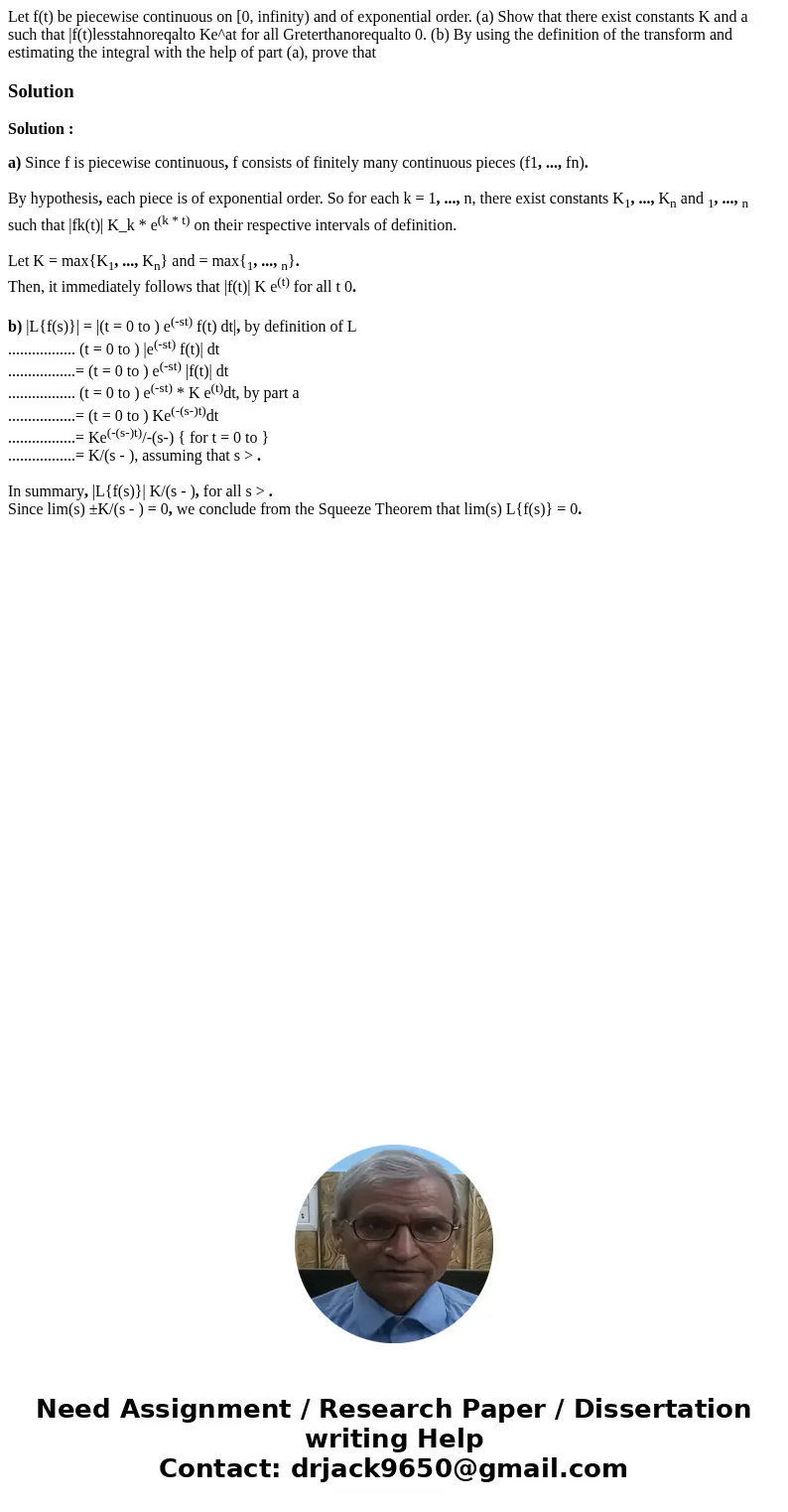Let ft be piecewise continuous on 0 infinity and of exponent
Solution
Solution :
a) Since f is piecewise continuous, f consists of finitely many continuous pieces (f1, ..., fn).
By hypothesis, each piece is of exponential order. So for each k = 1, ..., n, there exist constants K1, ..., Kn and 1, ..., n such that |fk(t)| K_k * e(k * t) on their respective intervals of definition.
Let K = max{K1, ..., Kn} and = max{1, ..., n}.
Then, it immediately follows that |f(t)| K e(t) for all t 0.
b) |L{f(s)}| = |(t = 0 to ) e(-st) f(t) dt|, by definition of L
................. (t = 0 to ) |e(-st) f(t)| dt
.................= (t = 0 to ) e(-st) |f(t)| dt
................. (t = 0 to ) e(-st) * K e(t)dt, by part a
.................= (t = 0 to ) Ke(-(s-)t)dt
.................= Ke(-(s-)t)/-(s-) { for t = 0 to }
.................= K/(s - ), assuming that s > .
In summary, |L{f(s)}| K/(s - ), for all s > .
Since lim(s) ±K/(s - ) = 0, we conclude from the Squeeze Theorem that lim(s) L{f(s)} = 0.

 Homework Sourse
Homework Sourse